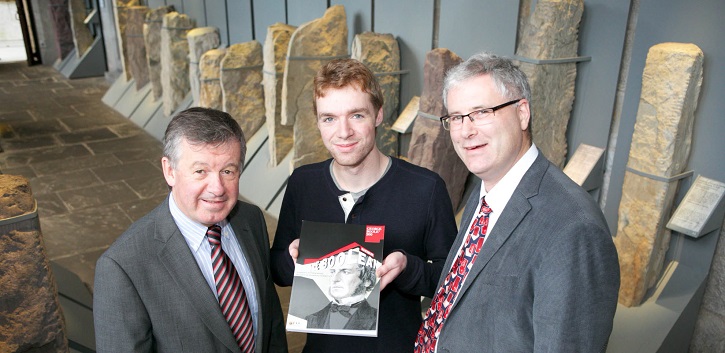Cork newspapers battled as ‘actors and reporters’ post-1916

The suppression of newspapers in Cork post-1916 represented a devastating restriction of freedom of speech during a pivotal period in history, according to new research by a UCC student.
The Southern Star, Skibbereen Eagle, Cork Examiner and Cork Constitution acted as central actors and reporters in the battle for hearts and minds between 1916 and 1923, in the face of intense censorship, an article by Alan McCarthy, a first year PhD student in the School of History, claims.
The Skibbereen Eagle, which “would become radicalised during the period,” was the first publication to publish a poetic verse by famed Fenian Jeremiah Donovan Rossa.
The Eagle’s first taste of repression came in 1917, with company secretary James O’Driscoll recalling that “the Eagle office was raided by armed and disguised men, the machinery broken and considerable damage and confusion caused.”
P. Sheehy, the “brilliant poet editor of the Eagle” suffered the indignity of being tarred and feathered, and the paper had a boycott imposed upon it during 1920, with copies of the weekly paper stolen and burned in some instances, McCarthy writes.
Cork newspapers under fire during revolutionary period https://t.co/jrLhc1EPYZ pic.twitter.com/0vImhWhJA6
— The Irish Times (@IrishTimes)
November 9, 2015
The article is among 39 published in the fifth volume of The Boolean, which has been launched by Dr Michael Murphy, President of University College Cork (UCC). The online journal presents Snapshots of Postgraduate Research at UCC.
Other articles explore why life improved so dramatically for over 50’s in Limerick between 1875 and 1925, why the Shaky Bridge is so shaky, and the use of microneedle technology to deliver smarter, faster, better vaccines.
To have their articles considered for inclusion in The Boolean, which promotes the calibre of digital thinking and diverse research projects at UCC, authors were required to describe their research using non-specialist language, to ensure the wider community can understand it.
Historical role of newspapers in Irish revolution studied at @UCC https://t.co/0ty0MjRuko pic.twitter.com/pt8eWbivA7
— Irish Examiner (@irishexaminer)
November 10, 2015
Three UCC students used the work of George Boole as a foundation for their research.
Niamh Kavanagh centred her PhD on the development of high-capacity optical communications systems based on new types of optical fibres, while Fiona Murphy proposes to create a system for monitoring beehives remotely using wireless sensor networks, together with cloud storage and signal processing through her research.
Shane Duggan is designing and building parts of circuits for computer chips to simultaneously give them greater power and smaller size while using less energy.
However, “it is not only the work of George Boole that is inspiring current Research Students, with a wide range of research being carried out from investigating the use of technology by teenagers at night to the humour of saints in the middle ages,” comments Professor Liam Marnane, Dean of Graduate Studies, UCC.
Articles may be viewed at http://publish.ucc.ie/boolean/current
#Cork newspapers attacked by both sides in revolutionary period - Today's @IrishTimes on the launch of The Boolean. pic.twitter.com/wkBRoxFqro
— UCC Ireland (@UCC)
November 10, 2015
News hell after 1916 - @IrishSunOnline on UCC student Alan McCarthy's article in Volume 5 of The Boolean. #Cork pic.twitter.com/LwHtFD5Rlh
— UCC Ireland (@UCC)
November 10, 2015
Research by Alan McCarthy, a first year PhD student in the School of History, published in The Boolean Vol V. pic.twitter.com/QFIenyUtCH
— UCC Ireland (@UCC)
November 12, 2015
